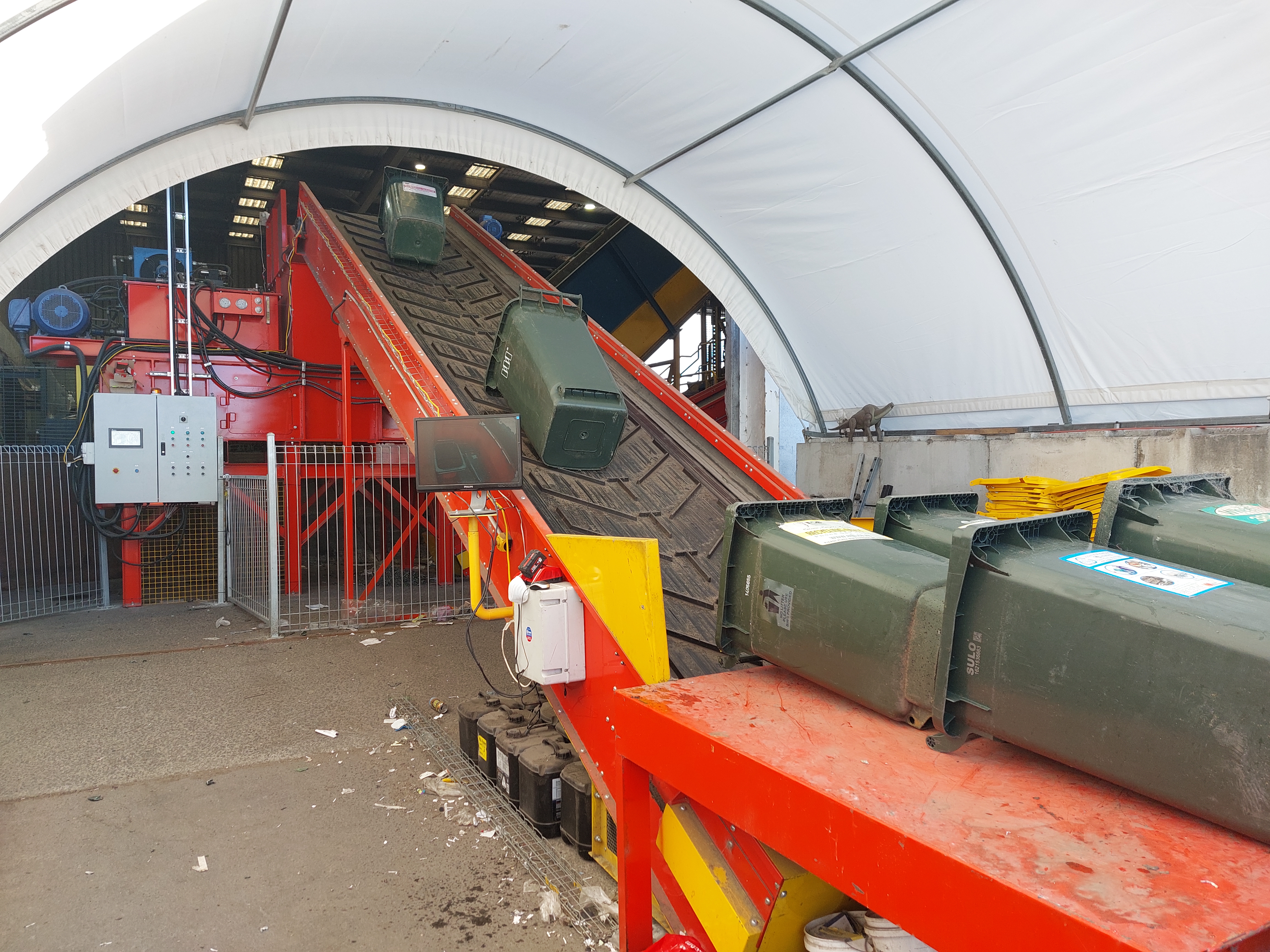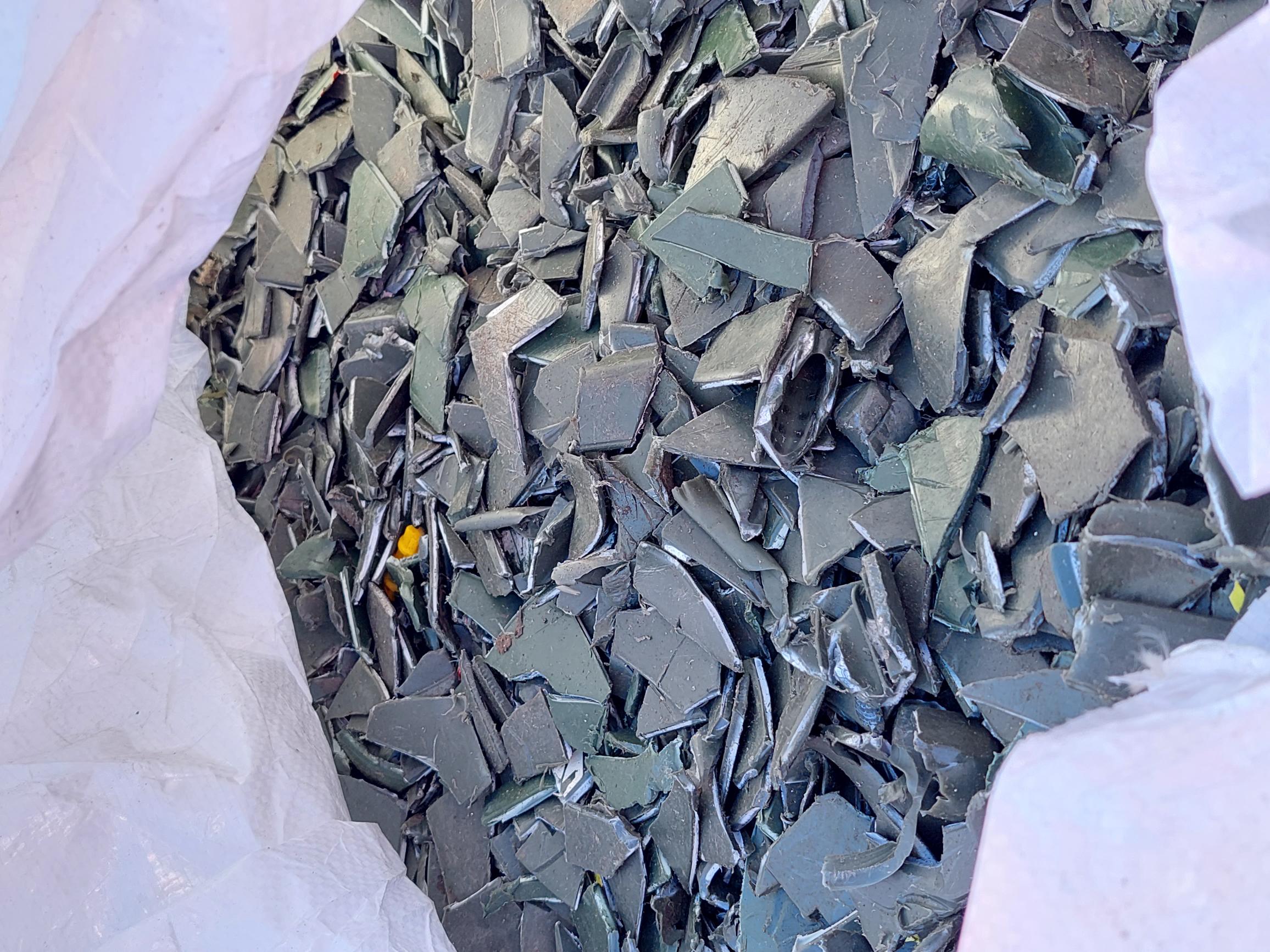-
For Home
For Home
Categories
- For Builders
- For Business
-
About Us
About Us
- Contact and Support
- Sustainability
Dealing with large plastic items like wheelie bins and drums when they reach end of life has been difficult in Aotearoa New Zealand. Due to their size, they are hard to recycle and are often sent to landfill. They represent a large resource that could be processed to make other products.
The main problem with recycling large plastic items in the past has been the need to break items down before they can be fed into an “off the shelf” grinding machine. This process, normally undertaken with a skill saw or saber saw, is inefficient and can be unsafe to the operator.

The large plastic grinder in action
The solution
Waste Management NZ has invested in specialised equipment to process large plastic items at its Tauranga base. It has been built to the company’s specifications in collaboration with an overseas machinery manufacturer, with safety and efficiency at front of mind. It is hydraulically driven and able to process large plastic items without the need to cut them down first. Instead, it breaks them down into 40mm sized pieces. It can produce up to 900 kilograms of plastic chips in an hour. The chips are then turned into recycled resin by plastics manufactures to make new products.

Plastic chips that have been through the grinder
Benefits
Currently Waste Management NZ has around 50,000 wheelie bins that have been in storage waiting for the new machine to start work. There’s likely to be a steady supply of wheelie bins as the business replaces damaged bins as part of its normal operations. Once the wheelie bin backlog has been dealt with, processing will extend to plastic drums (up to 200 litres in size) and other large plastic items like freight pallets.
“It is difficult to gauge actual volumes of all large plastic items, but this one machine will be diverting thousands of tonnes going into landfill every year,” says the Recycling Manager Kevin Weir.
“Ideally, the wheelie bin material that is currently being processed will go back to a wheelie bin manufacturer, thereby closing the loop.”